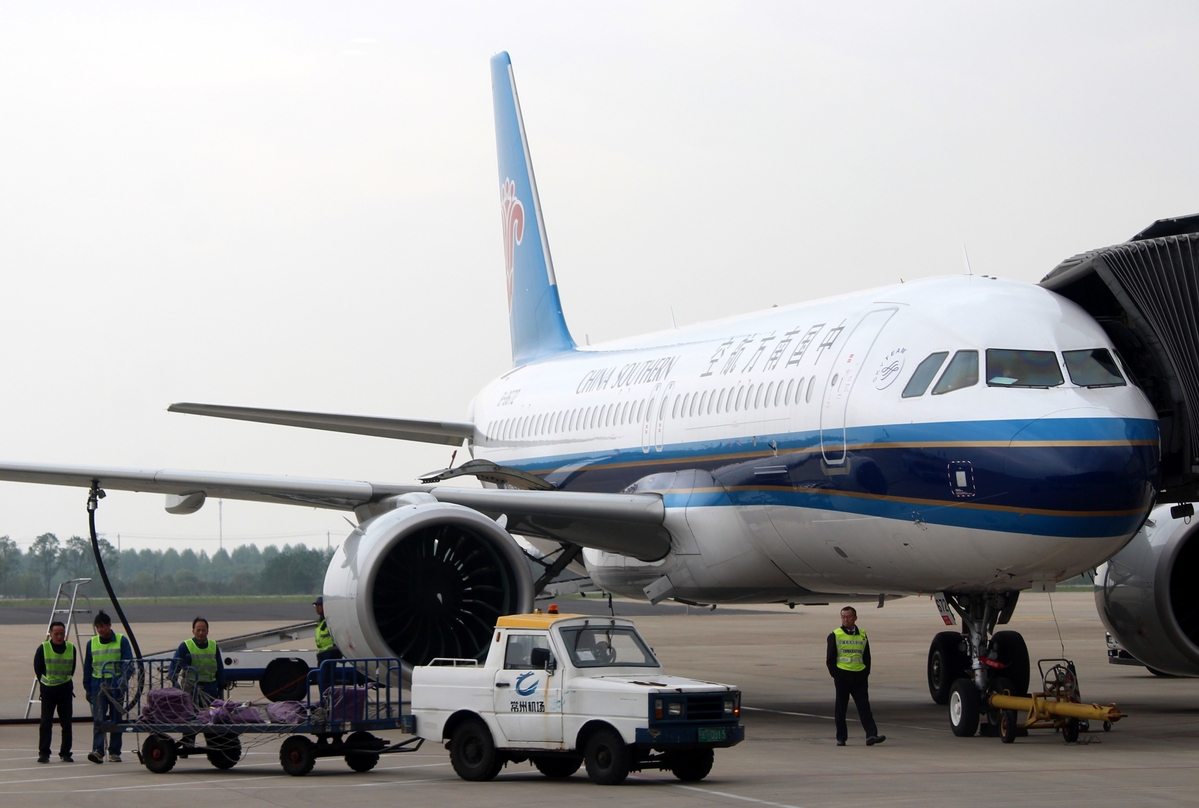Airlines announce slower H1 growth


State-owned Chinese airlines have reported sluggish growth in the first half year, dampened by rising oil prices and the depreciation of the yuan.
Air China Ltd netted 64.24 billion yuan ($9.36 billion) in sales revenue, up 11.96 percent year-on-year. Its net profit reached 3.47 billion yuan, up 4.27 percent year-on-year, according to its latest earnings report.
China Eastern Airlines Corp Ltd's sales revenue in the first six months hit 54.42 billion yuan, up 13.33 percent year-on-year. Its net profits reached 2.28 billion yuan in the period, down 47.78 percent year-on-year.
Guangdong province-based China Southern Airlines Co Ltd, the country's largest carrier by passenger traffic, said its sales revenue in the first six months hit 67.55 billion yuan, up 11.98 percent year-on-year, yielding net profit of 2.14 billion yuan, a 22.8 percent drop year-on-year.
Rising oil prices have had a significant impact on the major carriers' financial results. Air China said that in the first six months, its fuel costs jumped 29 percent year-on-year, representing 32.41 percent of its total costs.
The three State-owned carriers all said in their statements that fuel costs are their biggest expenditure, and their financial performance would slide in the event of significant fluctuations in oil prices.
However, demand for both domestic and international travel in the first half of the year remained robust, according to Air China, helping to offset negative factors.
"The three major carriers bore some pressure in their annual performances, as the oil price rise has had a significant impact. Additionally, if the yuan continues to depreciate, it will affect the airlines' profits because of exchange rate losses," said Lin Zhijie, an aviation industry analyst and columnist at Carnoc, one of China's largest civil aviation news websites.
"Sino-US trade frictions have had limited impact on airlines so far, but could have some negative effects on the performances of Sino-US flights in the long-term," he said.
Earlier this year, the Civil Aviation Administration of China allowed carriers to introduce variable ticket price systems on more than 300 additional routes, including flights that connect major first and second-tier cities. Some popular routes, such as flights connecting Beijing and Shanghai, have seen their flight tickets prices increase to the maximum levels.
Air China said those flights, which are mainly filled by business travelers, are less price-sensitive, so price increases on such routes will help airlines to raise their sales revenue.



































